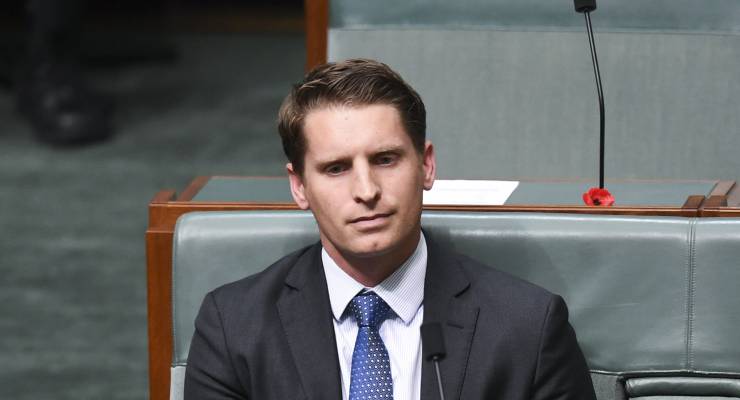
The decision on Tuesday by Liberal MP Andrew Hastie to name Australian citizen and businessman Chau Chak Wing as an unindicted co-conspirator in a US court prosecution, was in defiance of US Department of Justice guidelines and showed a contemptuous disregard for Chau’s rights. Don’t be surprised if you hear that Hastie is requested to give evidence before a US court and asked to explain his actions.
Hastie, the chair of the parliamentary intelligence and security committee says that Chau is in fact “Co-Conspirator 3 or CC-3” in a case concerning the alleged bribery of former president of the UN General Assembly John Ashe. A recent meeting with US intelligence officials led him to confirm that CC-3 is Chau.
Leaving aside the diplomatic foolishness of Hastie’s actions and his dismissal of Chau’s rights, there are other serious problems with his attention-grabbing speech.
Labeling an unindicted co-conspirator is a practice used in the US, whereby a person is named as part of a criminal conspiracy but is not formally charged with any offence. Such a beast does not exist in Australia, and for good reason; it has been routinely criticised by US courts as being grossly unfair, as people named in this way cannot give evidence or clear their name. In 1975, the US Fifth Circuit Court of Appeals, one of the leading courts in the US court system, approved a statement made by the Florida Supreme Court, which colourfully described the problem with the practice:
The medieval practice of subjecting a person suspected of crime to the rack and other forms of torture is universally condemned; and we see little difference in subjecting a person to the torture of public condemnation, loss of reputation, and blacklisting in their chosen profession … The person so condemned is just as defenseless as the medieval prisoner and the victim of the lynch mob …
The practice is frowned upon so much that the US Department of Justice has issued guidelines that prevent the naming of people in this situation. The US Attorney’s Manual states:
In the absence of some significant justification, federal prosecutors generally should not identify unindicted co-conspirators in conspiracy indictments … Ordinarily, there is no need to name a person as an unindicted co-conspirator in an indictment in order to fulfil any legitimate prosecutorial interest or duty. For purposes of indictment itself, it is sufficient, for example, to allege that the defendant conspired with ‘another person or persons known.’
In other words, what Hastie has done is blatantly in breach this wisdom. There was no “significant justification” for doing so.
What is also troubling is that it appears officials of the FBI or some other law enforcement or intelligence agency have also broken their own guidelines in providing the information to Hastie.
Sure, Hastie is not a US attorney, but Hastie is a legislator who should uphold the rule of the law and be particularly cautious in trashing the reputation of others who cannot defend themselves publicly. Now to see if Chau’s lawyers subpoena Hastie, compelling his attendance in court for a “please explain”.








Hastie, like all good platoon commanders, should have had his 2IC check-out the SMEAC for this latest mission before flapping his gums. That is, of course, assuming Hastie’s 2IC isn’t the type that is prone to rolling a grenade into his shellscrape while he’s having a kip.
Could Hastie be brought before a US court for his Chau Chak Wing comment?
No. Greg, surely you must know that nothing will happen. Hastie blurted this out with the full cooperation of American authorities. Trump may give him a fake wrist slap, but that will be all.
How is this a story?
Hastie has the protection of parliamentary privilege and he isn’t American. Do you reckon an Australian acting within the law in Australia is likely to go before an American court for something that’s illegal in America?
Reminds me of that time Assange, who is an Australian citizen, was accused by Americans of committing treason against America. Whaaat…
Australia and America were different countries last time I looked but you wouldn’t think so the way the media carries on.
And the way the two major parties brown nose up to the USA
The Florida Supreme Court’s description of character assassination as torture but, as with the nu head of the CIA, I’m sure Tasty would be just dunky-whores with that.
No need for faffing about with claims of “usable intelligence” – something he clearly lacks.
He’d be the sort of gung-ho lad who could be given a bayonet & blow torch and be trusted to stick to the question list, with a disturbing enthusiasm.
“Stout lad, no imagination, obedient.”
Come on Greg, you are too good a lawyer to overlook that Hastie could not be compelled to appear in an Australian court to explain due to parliamentary privilege, and could not be compelled in a US court due to diplomatic immunity.